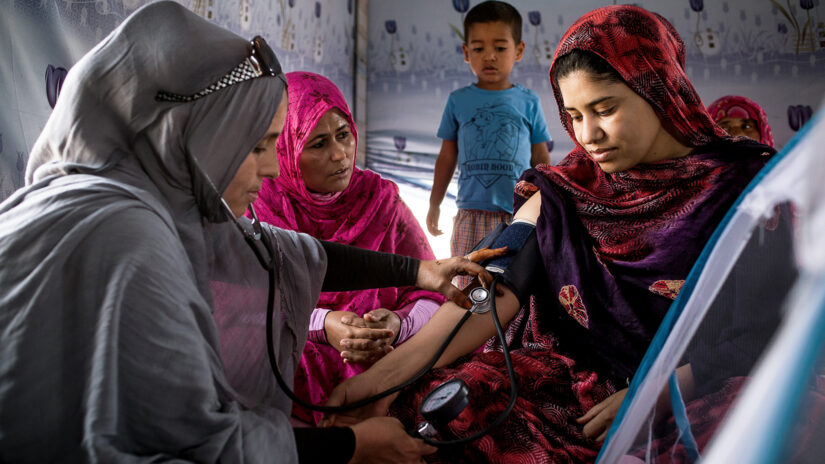Innovative partnership model to improve access to cancer care in LMICs

Through public and private sector partnerships, a global initiative innovates for better access to cancer care worldwide.
The global prevalence of cancer is increasing rapidly, presenting an especially heavy burden for people in low and middle-income countries (LMICs). Collaborative and innovative thinking is now needed to expand access to quality cancer care.
In this spirit, the Access to Oncology Medicines (ATOM) Coalition, launched in May 2022 by the Union for International Cancer Control (UICC) and other partners, aims to bring together a wide range of actors around the common goal of improving access to cancer medicines, quality diagnostics and care for people in lower-resource settings.
Increasing availability and affordability
Comprised of approximately 20 global health-focused civil society organisations, medical societies, global oncology centres, as well as 10 biopharmaceutical and generic manufacturers and associations, the coalition can help countries deliver their national cancer control strategies by providing support on capacity building, training and increased availability of essential cancer medicines.
Access to medicine worldwide
The goal is to ultimately improve timely access to essential cancer medicines as well as increase countries’ capacities to provide quality cancer diagnosis, treatments and care. To this end, priority will be given to essential cancer medicines on the World Health Organization’s Model List of Essential Medicines, which outlines the minimum medicine needs for any health system.
The ATOM Coalition partners will work collectively to increase access to generic and patented cancer medicines in 46 LMICs, selected by the coalition based on a number of criteria, including existing health system readiness. In parallel, partners will work together to implement coordinated capacity building, starting with a handful of countries in the first phase of operations.
Solutions-based model
Innovation in oncology should include leading-edge research and development for the next line of treatments that will continue to improve outcomes for patients. Innovation also means developing new access solutions to ensure greater availability of quality cancer diagnostics and care. We are confident that the unique model will spur new types of collaborations, provide tangible solutions to people living with cancer in LMICs and help address the pressing global cancer burden.
This blog was originally published on Health Awareness on 3 October 2022.
Author






